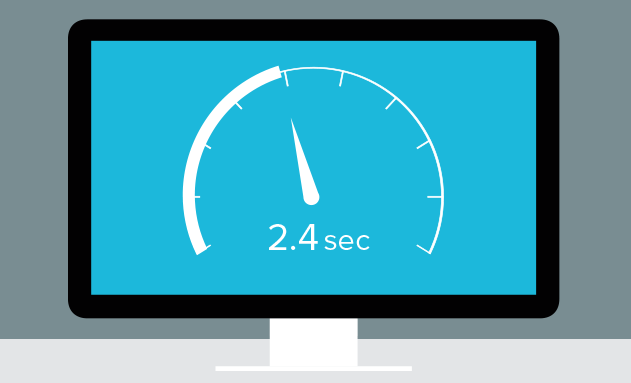If your website is running slow, it’s costing you money. A slow site means impatient visitors – and that means visitors leaving your site before things load and missing out on another potential sale.
A slow site can even cripple you before visitors click on your page. That’s right, site speed is one of the many factors Google’s algorithm uses to rank sites on its search engine results page.
The average webpage homepage loads in 3.39 seconds. While this is average, there are pages on very opposite ends of the loading time spectrum. In fact, the fastest-loading site is able to fully load 58 times while the slowest loading page loads once. This difference is jarring, showing that there are a lot of ways to either slow your site down or speed it on up.
Obviously, you’re not trying to slow your site down, so we’re uncovering 5 simple ways to improve your site speed, so you can get ranked higher on Google’s results pages and make quicker, better impressions on site visitors.
Here are the easiest ways to get things loading quicker on your site:
1. Keep the design simple.
A simple website design makes loading simpler and thereby faster. This happens because in reducing the complexity of your design, you reduce the number for HTTP requests required when loading each page. These requests must be made for each element of design on the page to be loaded, so there’s no other way around them. Once you reduce the number of elements that must be loaded, however, the loading time gets much quicker.
A simple design interface also makes the experience more enjoyable for visitors, thus making your chances at converting visitors into customers that much higher.
2. Make the images optimized.
Images are absolutely critical in the landscape of websites. Photos give a visual to the company, helping customers connect with the business. Humans are also visual learners, absorbing information much better and quicker through images than through words.
Because of this, images must be carefully placed and utilized in web pages. When used without careful thought or design, however, they can slow down the loading of pages. This could cause the visitor to possibly miss the images all together if they get frustrated and jump ship.
High-quality images that are uploaded at the scales at which they will be displayed on the site will help them load faster. That way, you don’t have to worry about unnecessary pixels that won’t even enhance the quality.
3. Allow for caching.
Caching is when a computer stores data for future use, making things quicker and easier in days to come. This saves time and saves the network some energy next time you re-visit a site you’ve already been to.
By enabling caching on your website, you’ll make it easier for returning visitors to load your page. If they’re returning, there’s a much higher chance they will convert, so acting quick on this second visit is crucial.
4. Eliminate unnecessary plugins.
When you get to the world of plugins in the web design space, it can be easy to get ahead of yourself and go plugin-happy. While plugins can serve important and unique roles on websites, they also require resources in order to run that may slow the speed of the site down a bit.
By disabling each plugin one at a time and measuring server performance, you can determine which of plugins you’re using is causing a drag. Sometimes 10 plugins will take more resources than 50 – it just depends on the individual plugins used. That’s why testing each one to find the energy-suckers is important.
5. A better-managed website is a faster website.
A good website manager will know these tips and more to help optimize your website for performing at its highest possible speed. Hiring the right person or taking these responsibilities on for yourself will ensure there’s someone constantly monitoring site function and speed.
If site management isn’t your forte, you can find WordPress management services to handle that kind of thing. Whether they are outsourced or internal, having someone dedicated to your digital presence will improve online results.


0 :